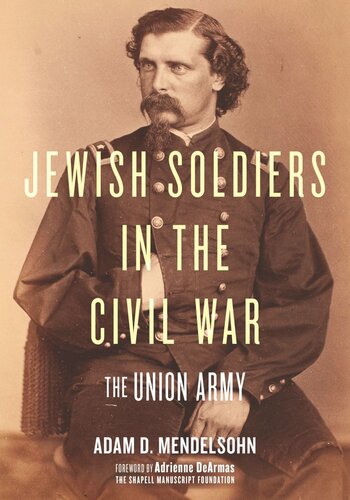

Most ebook files are in PDF format, so you can easily read them using various software such as Foxit Reader or directly on the Google Chrome browser.
Some ebook files are released by publishers in other formats such as .awz, .mobi, .epub, .fb2, etc. You may need to install specific software to read these formats on mobile/PC, such as Calibre.
Please read the tutorial at this link: https://ebookbell.com/faq
We offer FREE conversion to the popular formats you request; however, this may take some time. Therefore, right after payment, please email us, and we will try to provide the service as quickly as possible.
For some exceptional file formats or broken links (if any), please refrain from opening any disputes. Instead, email us first, and we will try to assist within a maximum of 6 hours.
EbookBell Team

4.8
14 reviewsOffers an engaging account of the experiences of Jewish soldiers in the Union Army during the Civil War
What was it like to be a Jew in Lincoln’s armies? The Union army was as diverse as the embattled nation it sought to preserve, a unique mixture of ethnicities, religions, and identities. Almost one Union soldier in four was born abroad, and natives and newcomers fought side-by-side, sometimes uneasily. Yet though scholars have parsed the trials and triumphs of Irish, Germans, African Americans, and others in the Union ranks, they have remained largely silent on the everyday experiences of the largest non-Christian minority to have served.
In ways visible and invisible to their fellow recruits and conscripts, the experience of Jews was distinct from that of other soldiers who served in Lincoln’s armies. Adam D. Mendelsohn draws for the first time upon the vast database of verified listings of Jewish soldiers serving in the Civil War collected by The Shapell Roster, as well as letters, diaries, and newspapers, to examine the collective experience of Jewish soldiers and to recover their voices and stories. The volume examines when and why they decided to enlist, explores their encounters with fellow soldiers, and describes their efforts to create community within the ranks. This monumental undertaking rewrites much of what we think we know about Jewish soldiers during the Civil War.